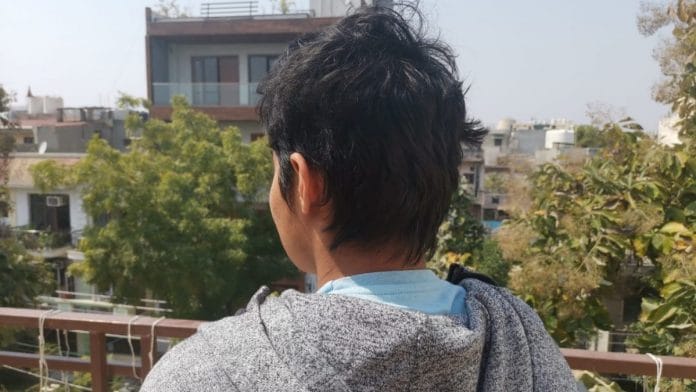It’s 2020. If I keep short hair, wear floaters, jeans, loose sweatshirts, and no make-up, you don’t have the excuse to act confused about my gender. I am not here to perform my femininity for the world.
“Ok, sir. Can I get you anything else?” is the usual response I get at a restaurant or a shop. The reason it’s noteworthy is because I am not a man. I wasn’t born as one nor do I identify as one. Yet, my short hair and androgynous clothing seem to befuddle, even bother the masses.
And it’s not just a case of misplaced pronouns. Long stares and double-takes have also become commonplace as I see my fellow pedestrian walkers or metro riders try to uncover if I’m a he or a she.
I can dare be as prescient to make a guess that you are probably already scrolling up to my image or opening up my Twitter profile, which bolsters my point about our society’s limited perception of womanhood. Why must I keep “performing” my femininity?
From Mamata Banerjee to Nirmala Sitharaman, women are criticised for not smiling enough, Hillary Clinton for her ‘pant-suits’, and Mayawati for her short hair.
Also read: On Women’s Day, I want a transgender law that won’t hurt one’s sense of self: Apsara Reddy
Lost/found identity
If you really need to know, I identify as a woman with androgynous tastes, which was a bit of a revelation when I cut my long flowing hair. Ever since then, every time I have walked into a salon, my request for a trim has almost always been met with a grimace and a curt remark — “Shorter than this?” The words reverberate wherever I go as if everyone is suffering from a collective heartbreak over a “loss of identity”.
The loss they feel is actually their inability to connect my gender with my sex. And yes, they are distinct. As Judith Butler explains in her famous paper on Performing Act and Gender Constitution: “The association of a natural sex with a discrete gender and with an ostensibly natural ‘attraction’ to the opposing sex/gender is an unnatural conjunction of cultural constructs in the service of reproductive interest”.
Simply put, I am socially mandated to perform my womanhood, perform my femininity because biologically I am female.
“The reproduction of the category of gender is enacted on a large political scale, as when women first enter a profession or gain certain rights, or are reconceived in legal or political discourse in significantly new ways,” Butler explains.
But these notions of gender performance have existed for some time now, especially since feminism and LGBTQ movements took centre stage. It’s largely been accepted that women have the right to choose their careers, their partners, if and when they want to reproduce. Women have made strides in the workplace, in households, in politics. So why do they still remain limited by the prescribed aesthetics of womanhood — the clothes, the make-up, the hair, the shoes? Alternatively, why haven’t we expanded our definition of womanhood?
It’s not just in parks where salwar-kameez and sneaker donning aunties look me up and down; this aesthetic was seen at my college (a private liberal arts institution) and gets reproduced at every party I go to, even at my workplace. In school, I was constantly made fun of for my wide shoulders and athletic-built.
I am tired of this overt judgement over my sandals with velcro straps, unkempt short hair and baggy sweatshirts.
Also read: Feminism a Woodstock-inspired fad, snug families can check rape, says new RSS book
The burden of performance
The real hurdle is that women everywhere have to make themselves “palatable”. Soft but assertive, ambitious but grounded, independent but homely, sexy but not a “slut”; the list with contradictory qualifiers are really endless. Nirmala Sitharaman is often told to smile more, be pleasant. She is criticised for her stern look because being India’s finance minister doesn’t say much about her than the amount of clarity a smile of hers would give.
More often than not, I have seen women being apologetic while asserting a point. Every argument begins with “I might be wrong but…” And more often than not, I have been typified for feeling too strongly about an issue. “Oh, she’s going to bring up caste again,” was a common retort used by my classmates at the college whenever I mentioned Ambedkar. The “jokes” had been a little more rudimentary in school.
This did considerable damage that took years to undo. I would never bring up caste again, or at least do so very hesitantly, and I would always dress against my wish. I think it was only when I cut my hair that the last vestiges of self-doubt shed away.
So, dear passersby, if my aesthetics confuses you, if I don’t fit within your conventional notions of what it means to be a man or woman, perhaps it’s time for you to introspect over your anxiety about a stranger’s gender.






